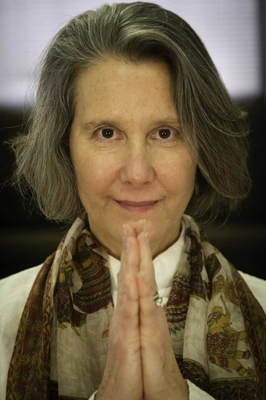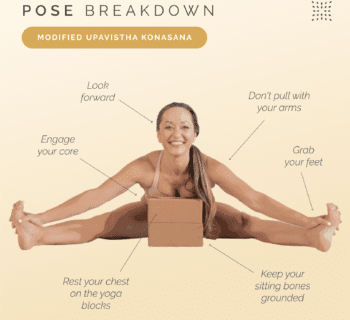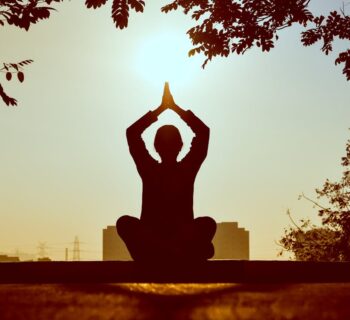Yoga is not a feel-good practice; it is a practice of self-accountability. It asks us to be responsible for our inner experience and learn to divorce it from the outside world (vi-yoga). It further propels us to grow rather than to remain stuck in unhelpful patterns of thinking (vikalpas) and behaving (vasanas).
The past year has been a reckoning for most of us as we faced:
- A life-threatening global pandemic, lockdown, and quarantine
- Global economic meltdown because of businesses shutting
- A rapidly worsening climate crisis that puts all life on the planet in peril
- A tipping point in the collective awareness of the ravages of racial oppression, white supremacy, and colonialism
- An ever-widening political divide that put the US on the brink of civil war
- The growth of extremism, conspiracy theories, and fringe cult groups unable to deal with these realities, perhaps as a form of counterphobia
There is plenty to be anxious and depressed about, and data shows that anxiety and depression rates skyrocketed early in the pandemic lockdown. To top it off, the SARS-CoV-2 (or Coronavirus 19) also seems to have neurological and psychiatric impacts on those who have been infected, with 1 in 5 people who have had COVID meeting criteria for a mental health disorder after the infection. Given these facts, I propose that we cannot center problems in the individual without addressing also the social, cultural, economic, and political realities that influence people’s fears and hopelessness. Healing must happen in community.
The year 2020 has challenged many of us to question in what unconscious ways colonialism, white supremacy and white privilege have shaped us personally and professionally. Asked to write a blog on yoga for anxiety and depression, I struggled to identify a context that felt satisfying. Finally, I understood that I wanted to bring a new perspective to these very real and disabling, but also all too common human experiences.
Disease, according to Yoga Sutra 1:30, is one of nine obstacles that obstruct progress on our path to experiencing the state of yoga. The yoga tradition understands disease as a misalignment with the rhythms of nature. We are increasingly out of harmony with the natural universe. After industrialization, even less so. The planet’s rhythms and our individual circadian rhythms are out of sync. Conditioned by a white supremacist culture that tells us our worth is dependent on performance, achievement, and amassing material wealth, we resist rest. The brain then sends us signals that something has gone awry, and we become anxious and depressed.
Anxiety and depression are not new phenomena. They have affected humans through millennia because they are natural responses to an over-taxed nervous system. In a way, they are both a warning, and an attempt to re-regulate the human organism when it has become dangerously imbalanced due to extreme stressors. Anxiety is the mobilization of metabolic energy towards necessary action, and depression is a demand that the system rest, so it goes into shutdown for energy conservation. These processes will be explained further in subsequent blogs detailing the neurophysiological and psychological or cognitive components of these experiences.
Unfortunately, 20th century psychiatry, to categorize these phenomenological experiences as mental illnesses, began to reify these constructs and give them a life of their own—so we are no longer human beings having a transitory experience, but we become defined by our anxieties or our depressions. For many, their diagnoses begin to define their identities. Instead of seeking more complex explanations and taking corrective lifestyle actions, we look for a simple external agent (i.e., medications) to rapidly fix our distress. Our locus of control is outside of us, rather than within us. The yoga path, on the other hand, asks us to do self-study (svadyaya) and to engage in practice (sadhana) to shift states of consciousness and overcome the causes of suffering (kleshas).
Yoga is not a feel-good practice; it is a practice of self-accountability. It asks us to be responsible for our inner experience and learn to divorce it from the outside world (vi-yoga). It further propels us to grow rather than to remain stuck in unhelpful patterns of thinking (vikalpas) and behaving (vasanas).
Another disservice of modern psychiatry has been the simplification of solutions, so people (including some physicians) now commonly believe that depression is “a serotonin imbalance” to be rapidly resolved by a selective- serotonin-reuptake-inhibitor that will flood your brain with “feel good” neurotransmitters. But if that were the case, wouldn’t psychotropic medications have reduced the incidence and prevalence of anxiety and depression, and put a dent in the number of suicides recorded annually? Instead, what we are seeing are skyrocketing rates of all of these issues, especially in the more industrialized nations. And health and mental health professionals are bracing for a post-COVID wave of all of these “diseases” including post-traumatic stress disorder (PTSD). Clearly, our angst is a lot more complex than this simple neurotransmitter.
Medications are fine as an adjunctive support, especially during times of extreme stress, but they will not “cure” the underlying causes and conditions that led to our “disordered” thinking, feeling, and behaving. They work best as a short-term salve to help us do the necessary work of change. In fact, most research done to get drugs approved is short term, and the bulk of the data shows that antidepressants, for example, only work better than placebo in cases of very severe depression. And many of these medications have undesirable effects and are difficult to withdraw from. Some Serotonin Reuptake Inhibitors (SSRIs), for example, have FDA black-box warnings about the potential increase in suicidality in certain age groups. Education on the pros and cons is imperative before agreeing to introduce psychotropic medications.
The reality is that we are complex, multi-faceted beings whose unique and individual experiences require multi-faceted solutions. To decolonize therapy, we must humanize our experiences and bring back ancestral ways of healing in community by creating “communities of care.” We must de-mystify our experiences and put them in the context of social, cultural, economic, and political experiences and not “broken brains.” We must acknowledge the role of current and transgenerational, individual, and collective traumas. We must acknowledge all the ways that racist, sexist, fatphobic, transphobic, ableist, and capitalist ideologies impact individuals and communities – increasing anxiety and depression rates due to realistic fears and hopelessness regarding change. We must bring healing (the process of ecoming whole) to the center of treatment.
Decolonization is now used to talk about restorative justice through cultural, psychological, and economic freedom. Racial equality and eliminating wage disparities, for example, would do more for reducing depression and anxiety in certain groups than psychotherapy and anti-depressants. Decolonizing therapy means empowering individuals rather than making them dependent on a medical infrastructure designed to profit from illness. It means offering solutions that work for people within their cultural contest, even if they are not “evidence-based.” And finally, it means we must establish systems and institutions that understand dis-ease as just that: an attempt of the body and psyche to return to ease, flow, and coherence.
This is part 1 of a 3-part series. Subsequent blogs will deconstruct anxiety and depression as well as outline how yoga has been proven by research to help with these conditions. Inge Sengelmann is a licensed clinical social worker and certified ParaYoga teacher who specializes in disorders of extreme stress and is committed to anti-oppression practices and decolonizing mental health.
Inge Sengelmann, LCSW, SEP, RYT is a licensed psychotherapist and certified ParaYoga teacher who promotes a practice of embodied psychology and spirituality. Visit her website at www.embodyyourlife.org.
Photo by Lina Trochez on Unsplash.










